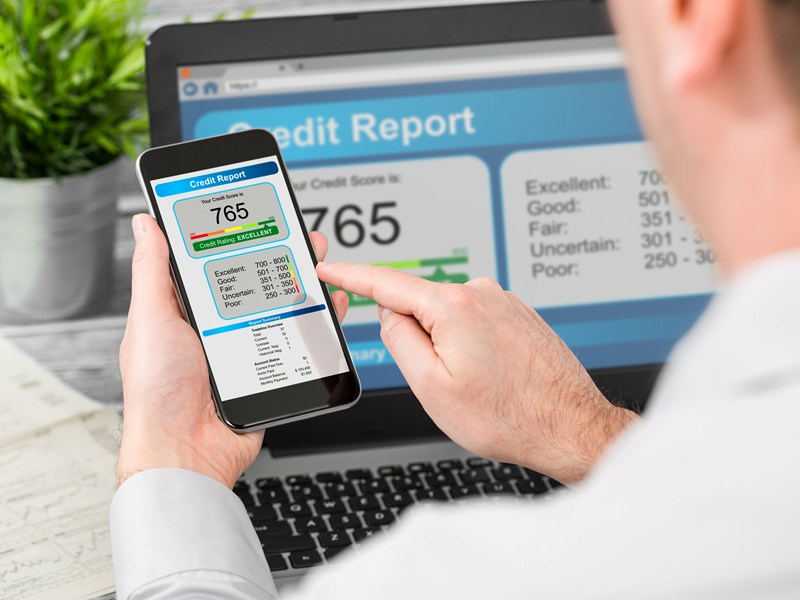What Is a Business Principal Report? Why Consumer Credit Reports Matter in Commercial Lending

When evaluating the creditworthiness of a business, especially a small or closely held one, it’s often not enough to just look at the company’s business credit profile. That’s where a Business Principal Report comes in.
A Business Principal Report is the practice of pulling a consumer credit report on the owner or principal of a business as part of a commercial underwriting decision—typically when the principal is personally guaranteeing a loan, lease, or line of credit for their business.
Though it involves a consumer credit report, it’s not being used for personal reasons. This type of credit inquiry is made under permissible purpose for commercial use—and that distinction matters, both legally and operationally.
Why Pull a Consumer Report in a Business Loan Scenario?
Most small businesses—particularly startups or sole proprietorships—don’t have enough of a financial track record to qualify for credit based solely on their business credit report. In these cases, the lender or broker will require the business owner to personally guarantee the financing. This means the owner is liable if the business defaults.
To evaluate that guarantee, lenders want to see how the principal handles their personal financial obligations—hence, the Business Principal Report.
What’s Included in a Business Principal Report?
A Business Principal Report is essentially a consumer credit report, but it’s pulled and viewed through a commercial lens. Depending on the provider (Equifax, Experian, or TransUnion), it typically includes:
- FICO® or VantageScore® credit score
- Revolving credit utilization
- Payment history
- Public records (bankruptcies, judgments, liens)
- Derogatory marks (late payments, charge-offs)
- Credit inquiries
- Debt-to-income insights
The data helps lenders understand the personal financial responsibility of the business owner, especially in relation to potential loan repayment if the business falters.
When Is a Business Principal Report Used?
A Business Principal Report is most commonly used in:
✅ Small Business Loans
Traditional and SBA lenders almost always review the business owner’s consumer credit file to back up their loan offer. Even if the business has good cash flow, weak personal credit can kill a deal.
✅ Equipment Financing
Dealers and equipment financing companies frequently rely on the principal’s credit to secure large purchases. Without strong business history, the personal guarantee becomes critical.
✅ Business Lines of Credit
When applying for a business line of credit, banks want a backup plan. The principal’s credit provides insight into their financial habits and likelihood of honoring the line’s terms.
✅ Trade Credit Applications
Vendors offering terms (Net-30, Net-60) may check the principal’s credit if the business credit file is limited or non-existent.
How Does a Business Principal Report Differ from a Regular Credit Pull?
Here’s the key distinction: the purpose. While the credit file is the same as what you'd see in a consumer credit report, a Business Principal Report is pulled under commercial permissible purpose, not for personal lending, employment, or tenant screening.
This has regulatory and compliance implications:
- You need authorization from the principal and you need to certify the purpose is for commercial use.
- The inquiry shows up on the principal’s credit file as a commercial inquiry, not a personal credit application. This may result with less impact on the credit score.
Can You Pull This from Any Bureau?
Yes. All three major consumer credit bureaus—Equifax, Experian, and TransUnion—can provide consumer credit data for business purposes.
- Equifax offers a branded version called a Business Principal Report, specifically designed for this kind of commercial underwriting.
- Experian and TransUnion don’t brand it the same way, but many resellers and lenders access these consumer reports for the exact same reason—to evaluate the creditworthiness of a business principal during a commercial transaction.
Why It’s a Powerful Tool for Lenders and Brokers
By combining a business credit report with a Business Principal Report, lenders get a full-spectrum view of both the company and the person behind it. This:
- Increases approval rates (even when business credit is thin)
- Reduces default risk
- Helps structure smarter deals
- Offers insights on personal guarantee reliability
For brokers, it allows for better client placement—matching applicants with the right lender or program depending on both personal and business credit strength.
Final Thoughts
In commercial lending, especially in the small business segment, the line between personal and business financials is often blurred. The Business Principal Report bridges that gap by giving lenders the consumer insight they need to make responsible credit decisions.
If you’re in the lending, equipment finance, or commercial credit space, leveraging Business Principal Reports can lead to better decisions, safer deals, and smarter lending strategies.















